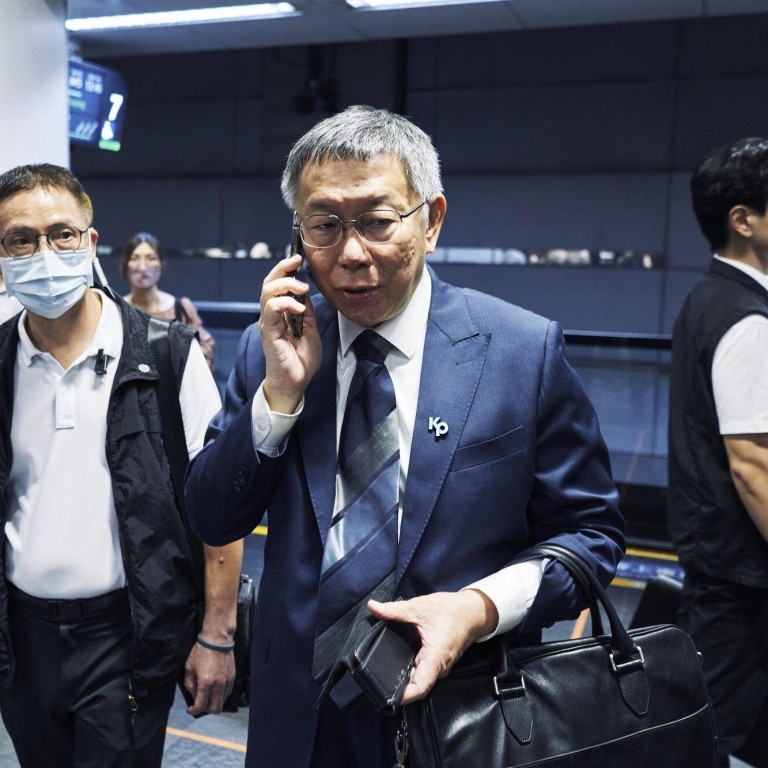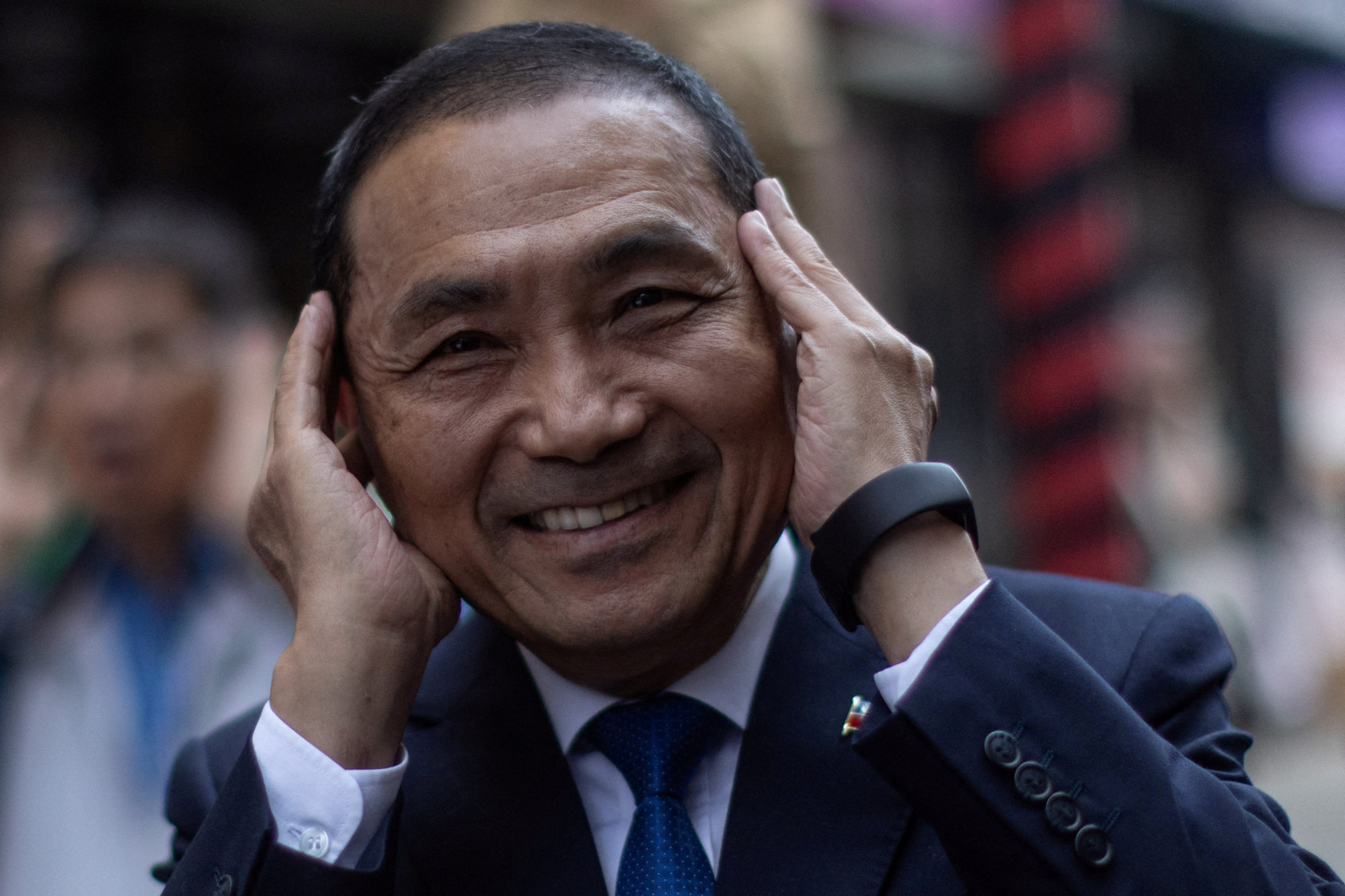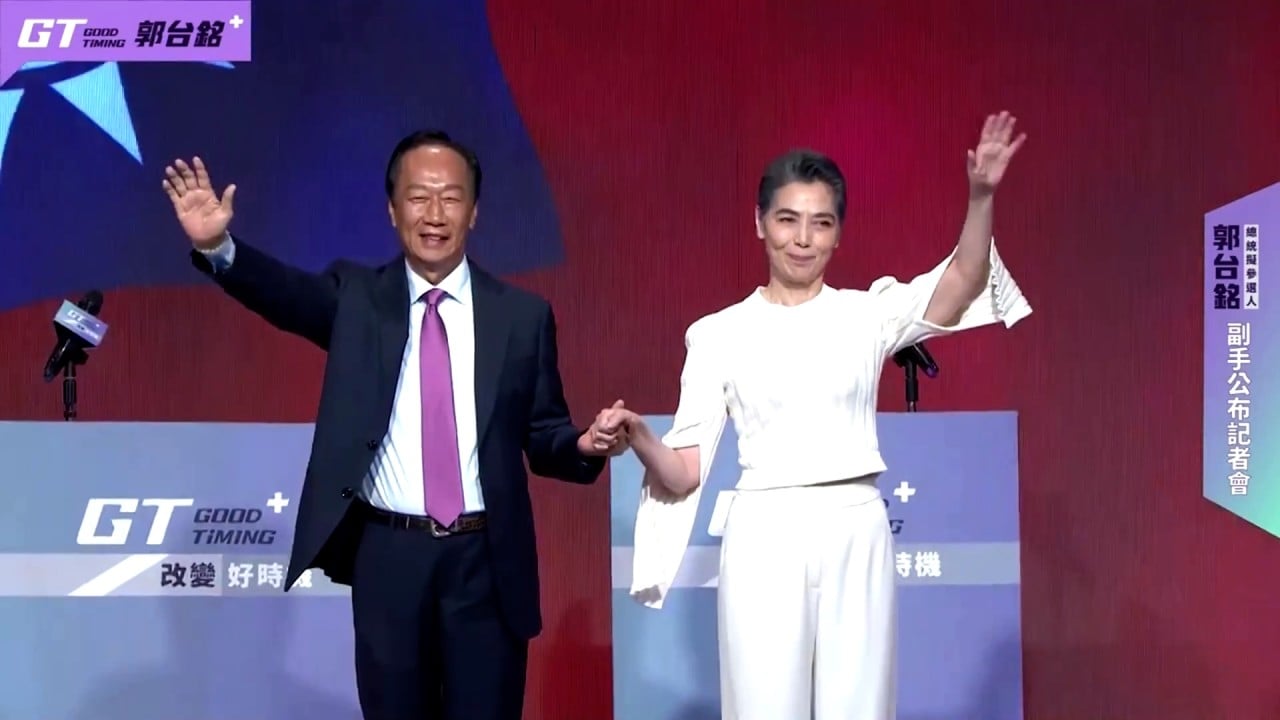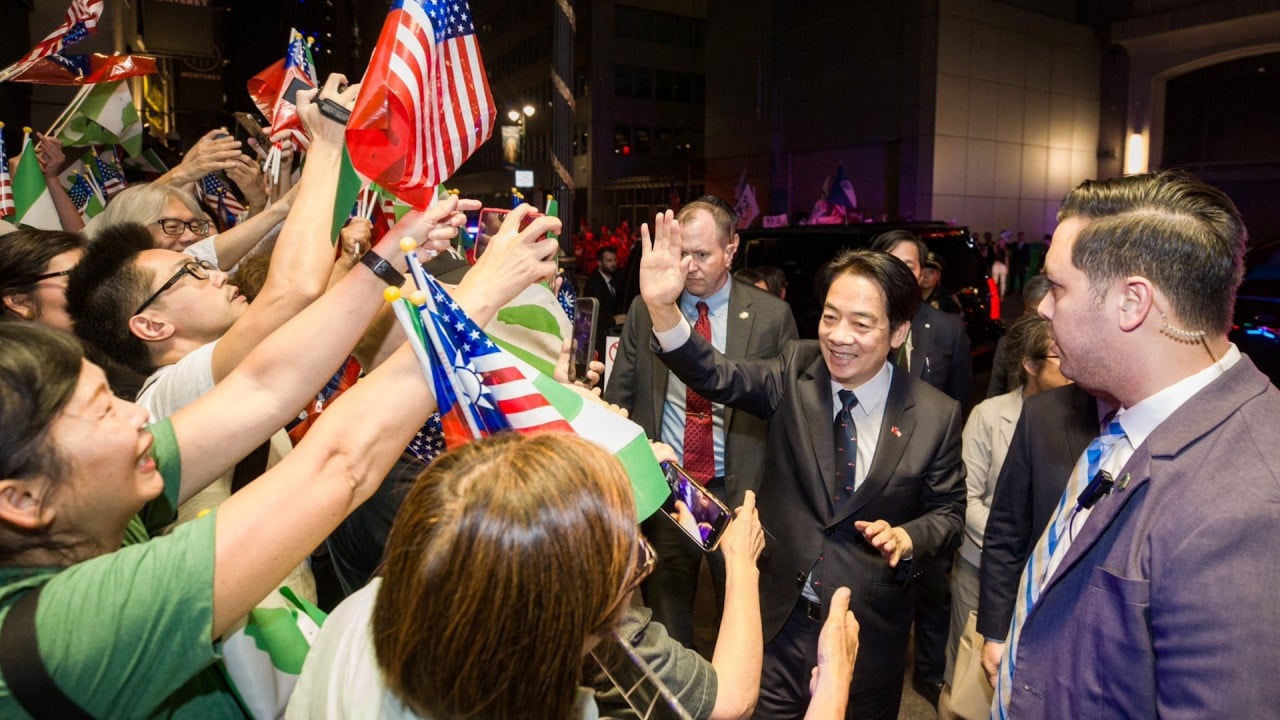
Taiwan’s KMT and TPP to discuss forming joint ticket for presidential election
- A joint ticket for Taiwan’s presidential election could be the only way the KMT and TPP can beat DPP front-runner William Lai Ching-te
- But the two parties coming to an agreement over who would be the presidential candidate could prove impossible, analysts say
Various opinion polls show the two opposition candidates trailing Lai by at least 6 to 15 percentage points. Only through cooperating with each other would they have a chance to beat the DPP candidate.
After floating the idea of a collaboration for months, on Thursday a decision was finally reached that the two parties would hold their first meeting to discuss how the ticket should be formed.
“Our two sides have agreed to hold a meeting on Saturday at 2.30pm,” Lee Li-chen, a spokeswoman for Hou’s campaign office, said, adding news conferences would be held before and after the talks, scheduled to end at 5.30pm.
Austin Tai, a campaign office spokesman for Ko, confirmed the meeting, saying the TPP hoped to focus on the technicalities related to the debates and impartiality of the surveys.
Hou told reporters late last week that poll comparisons should not be the main focus for the two sides in discussing the partnership.
He said such values included “opposing Taiwan independence, maintaining cross-strait peace, ending corruption and bringing about a transition of political power”.
Results of mainland China’s trade probe could come on eve of Taiwan election
Meanwhile, former Taipei deputy mayor Huang Shan-shan, director of Ko’s campaign office, said the two sides needed to wrap up their debates and polling by the end of this month before the deadline falls for the presidential and vice-presidential candidates to register their candidacy with the island’s election commission.
However former health minister Chen Shih-chung, head of Lai’s campaign office, saw little chance of success in the team-up, saying Ko might back out if he did not like the result of the talks.
“Can [Ko] be the presidential candidate? This is the reality,” Chen said when asked to comment on the proposed ticket at a political talk show on Wednesday.
Analysts agreed it would be difficult for the two sides to form a joint ticket, given their different stands, the sizes of their parties and the expectations of voters.
The KMT is currently the largest opposition party in Taiwan, holding 38 of the legislature’s 113 seats, while the TPP holds just five seats. The KMT also controls 14 of the island’s 22 cities and counties – the TPP has two.
“Would it be possible for Hou to concede if he lost in the poll comparisons? Would Ko accept being the vice-presidential candidate if he emerged as the front-runner in the polls?” asked Huang Huei-hua, a senior researcher with the Taiwan International Strategic Study Society, a Taipei think tank.

Aside from their different styles and personalities, the two do not have any consensus, Huang said, referring to their different views about debating and polling.
She noted that Ko had a “track record of reversing his words or promises” – so he might back off at the last minute if he found the result of the talks not in his favour.
Stephen Tan, managing director of International Policy Advisory Group, a Taipei-based geopolitical risk and policy consulting firm, said Ko – who has a bigger support base than Hou – would have more say in the proposed match.
“The KMT hopes Ko will concede, but Hou is trailing him in the polls. So, the ball is now in Ko’s court, and he could choose to be the presidential candidate or yield to Hou, depending on what advantages he could gain,” Tan said. “But again, would the KMT be able to agree to Ko’s terms?”
Tan was referring to Ko’s proposal to form a coalition government, with the TPP being able to name its officials if elected and change the presidential system to a cabinet system so that the government would be headed by the premier with the president as more of a ceremonial role.
Tan said Ko was also hoping to increase the TPP’s seats and influence in the parliament. The parliamentary race would be held alongside the presidential poll in January.
Given all these calculations, Tan predicted there would be more than a 50 per cent chance of success for the proposed team-up and that Ko could recommend Huang Shan-shan as Hou’s running mate since he was less likely to run as the vice-presidential candidate.
“But if they really form the joint ticket, they need to take into account that a sizeable support from young voters could vanish as they do not want to vote for the KMT,” Tan said. At least 40 per cent of Ko’s supporters come from the youth sector.



